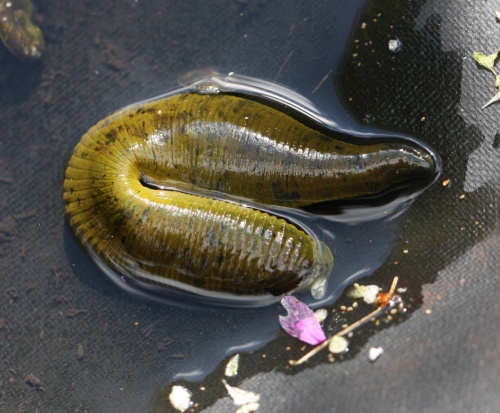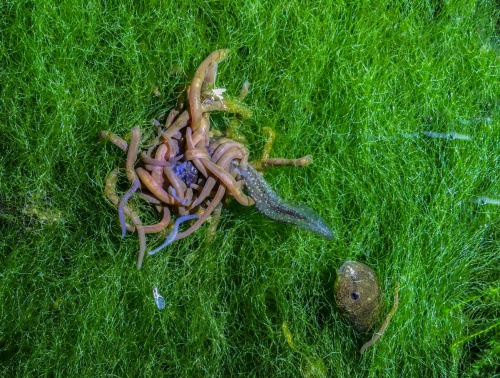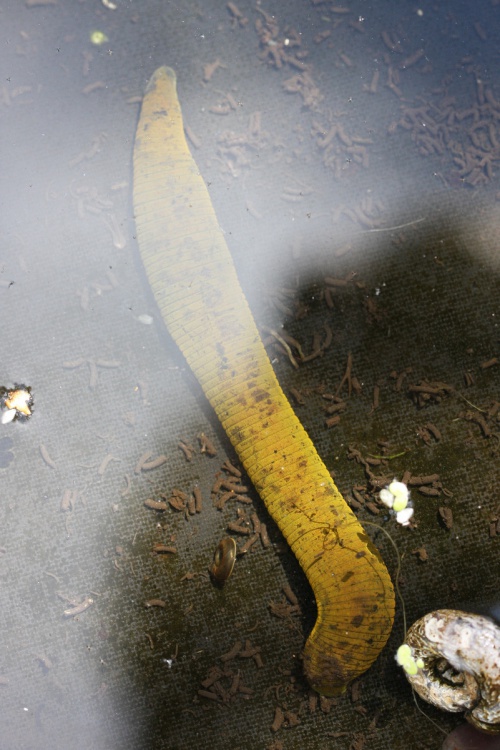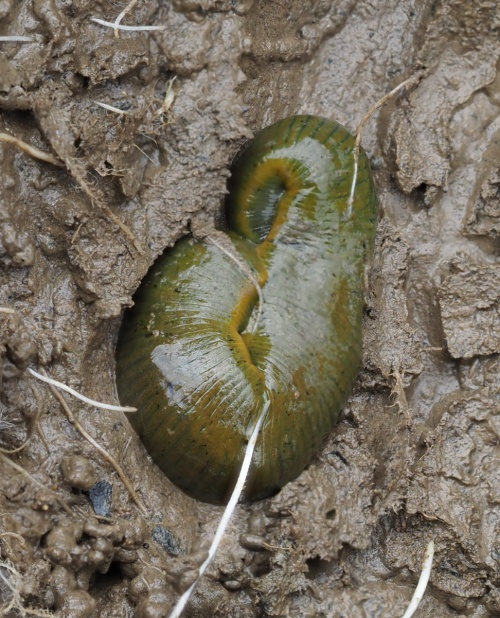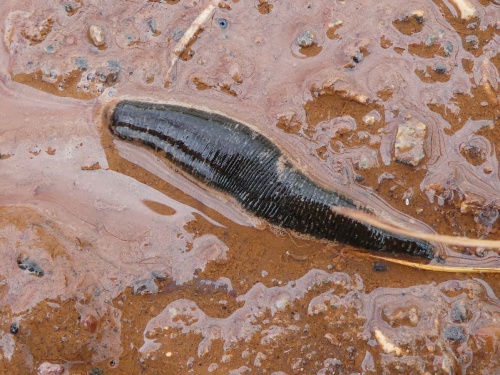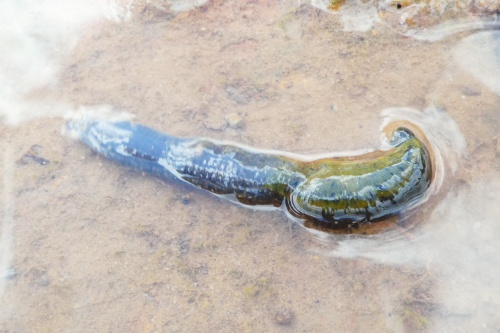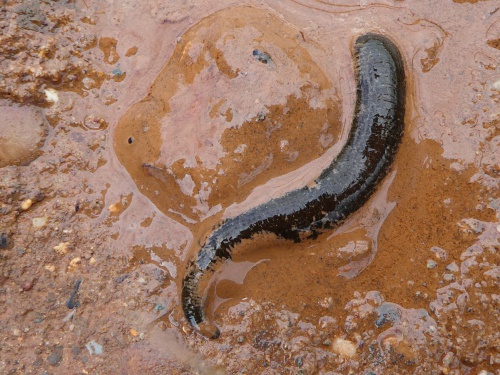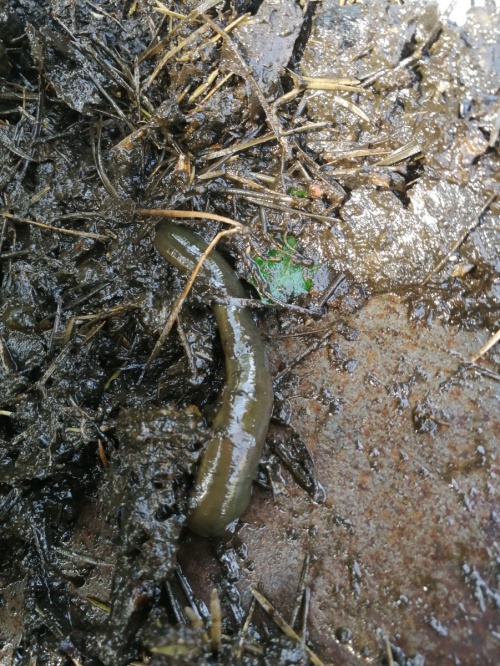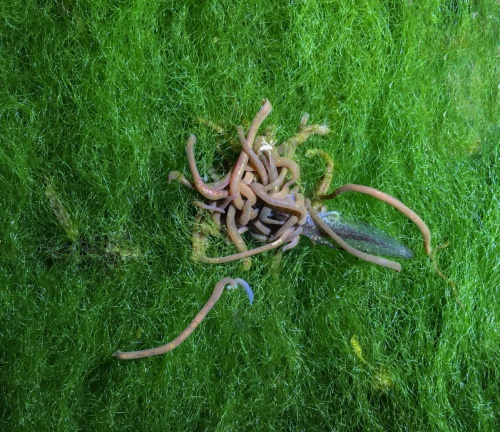Horse Leech - Haemopis sanguisuga
Despite the name, it does not attack horses and indeed cannot bite mammalian skin at all. This species can be quite large, reaching up to 15cm. Their greenish grey colour, usually flecked with black, and large size helps to identify the species. Juveniles have longitudinal stripes but these disappear with age. It is often found out of water, under logs or stones most frequently.
A good image and a note of size are generally required.
They are very common around still water and can often be found under stones near to water.
All year round
They feed on smaller animals such as midge larvae and snails but sometimes move onto land in search of earthworms. They are very sensitive to chemical traces in the water and find their prey this way. As well as predating small invertebrates they will also feed on carrion.
Widespread and common, though under recorded in Britain.
Commom in Leicestershire and Rutland.
Leicestershire & Rutland Map
Enter a town or village to see local records
MAP KEY:
Yellow squares = NBN records (all known data)
Coloured circles = NatureSpot records: 2025+ | 2020-2024 | pre-2020
UK Map
Species profile
- Common names
- Horse Leech
- Species group:
- Worms
- Kingdom:
- Animalia
- Order:
- Arhynchobdellida
- Family:
- Haemopidae
- Records on NatureSpot:
- 16
- First record:
- 06/06/2008 (Nicholls, David)
- Last record:
- 11/05/2023 (Nicholls, David)
Total records by month
% of records within its species group
10km squares with records
The latest images and records displayed below include those awaiting verification checks so we cannot guarantee that every identification is correct. Once accepted, the record displays a green tick.
In the Latest Records section, click on the header to sort A-Z, and again to sort Z-A. Use the header boxes to filter the list.


